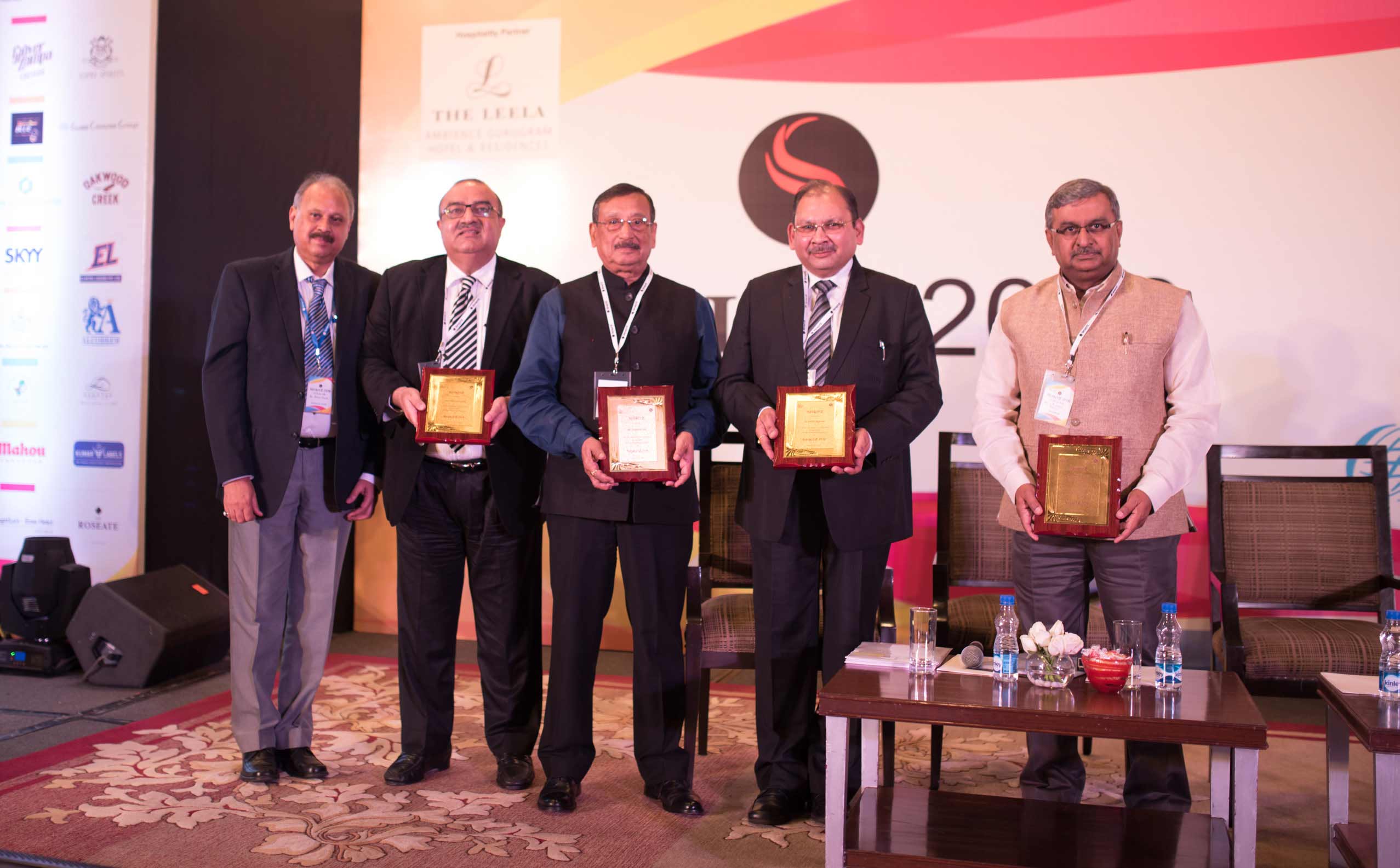‘Alcohol going to be taxed more’
I P Suresh Menon – Adviser-Tax & Regulatory Affairs at USL
(Chairperson of the session)
It is generally believed that GST is going to be good for the country. True, there is no doubt about that. The question is whether the GST as proposed will be implemented? With regard to implementation, it is said GST is not flawless but more of a flawed one. The reason is some constitutional exclusions which seem to be illogical, given the larger objective of the nation’s economic progress. The four notable exclusions are: petroleum, and gas, real estate and alcohol.
As the proposed law stands today, common market is a distant goal. About 51% of the taxable base is excluded from GST and its obvious consequence is that tax rates are going to be high.
Going against the much advertised objective of “one nation, one market, one tax”, what is proposed is not one nation-wide GST. There is a central GST and a state GST and the two will not talk to each other! Even today central excise duty and state VAT don’t talk to each other. So, what would be the difference after GST implementation? Alcohol out of GST is a myth. Because while the finished alcoholic product is out of GST, the inputs of the alcoholic product, both goods and services, are going to be subjected to GST. For example, molasses, grain, bulk spirit, and Scotch, if transferred from one factory to another, would be subject to GST because GST has taken away the whole concept of production and sale. It is now a concept of supply
which means stock transfers would be subject to GST. In all likelihood, the new tax rates, applicable to goods and services, used in the spirits industry would be higher than the
present ones. Already duties and taxes on alcobev products are multiple in various states. Cold drinks invite about 25% taxes on their ex-factory price but in the case of alcoholic products, taxes amount to 500-600% of the ex-factory price. The additional taxation post-GST is going to have a multiplier effect on the end consumer price. That is going to affect the demand for alcoholic products and government revenues. People are not likely to stop drinking but step down the value chain – from premium whisky to something priced lower. People at the bottom of the chain would probably slip down to country liquor. If there is no country liquor,  people may slip to the illicit or spurious liquor. So, these are the risks ofalcohol being out of GST. Opposed to the common tax rate which we find in many countries, in India we will end up with six tax brackets for different products. Classification of a product will be an issue,
people may slip to the illicit or spurious liquor. So, these are the risks ofalcohol being out of GST. Opposed to the common tax rate which we find in many countries, in India we will end up with six tax brackets for different products. Classification of a product will be an issue,
leading to litigation. The situation would be no different from what it is today.
Agricultural inputs are proposed to be excluded from GST but how far down the value chain would agricultural inputs continue to be excluded, we still do not know. Let’s take a look at the GST impact on raw materials. Today extra neutral alcohol (ENA) manufacture from molasses or
grain is not subject to any excise duty but VAT. But ENA is likely to be taxed in future. Similarly tax on freight from the present 4.5% may go up to 12%. And, this 12% will be the extra cost of those goods and agricultural produce which are out of GST. The GST regime is also going to adversely affect recycling of beer bottles. Every beer bottle is recycled 7-8 times. On the first recycle you pay 14-14.5% excise duty and sales tax. Every time you recycle you pay between
4-5% local VAT. But under GST, the rate is going to be 18%, a huge jump from 4-5%. You can’t even leave those bottles behind because somebody will fill the bottles with some spurious stuff and sell it in your genuine bottle. Same is the case with spirits.
About 75% of the market is in government hands. As price increases don’t come easy, post GST we are going to end up with reduced margins. Even if you succeed in jacking up prices, you may end up with diminishing demand, leaving the space for illicit and spurious liquor manufacturers to flourish. We have requested the government to look at the possibility
of adjusting our enhanced taxation against state duties and taxes or refund it cash. In countries like Australia and Malaysia, refunds and adjustments are provided for products which are not covered by GST.


